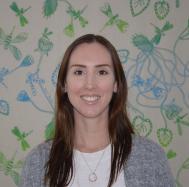Adulthood
2019 - 2023 Adulthood
Early adulthood has been described as the season of change. It’s a time when people are often raising a family, juggling work and family commitments and struggling to keep the balance and take care of their health. Health information in this age group remains sparse. Participants of both the TEC and ABC study underwent a comprehensive health assessment when they were aged 29-36 years. Once again, the research team lead by Professor Gurmeet Singh visited over 40 urban and remote communities and outstations across the NT.
People
Prof Gurmeet Singh, Belinda Davison, Jazlin McIntosh-Dunbar, Stephanie Hogan, Olivia Doig, Allyson Guistino and Lizzy Cox made up the core research group.
Data collected
The same core data including body size, shape and composition, cardiovascular measures and renal function, emotional status and lifestyle factors were once again assessed. These were expanded upon in this wave to include additional inflammatory markers, eye health and vison, and additional lifestyle markers such as major life events and stress biomarkers.
Findings
385 of the original cohort were seen at mean age 32 years.
Majority of people were in the healthy weight range, although overweight and obesity levels are increasing.
There remains a low prevalence of chronic disease markers, although these are starting to rise. We are continuing to analyse the data over the coming years and will provide regular updates.
Aboriginal Birth Cohort
People involved in this study






Related publications
| Year | Study | Citation | View |
|---|---|---|---|
|
2019 |
Aboriginal Birth Cohort, Top End Cohort |
Davison B, Singh GR, Oguoma VM, McFarlane J. Fingernail cortisol as a marker of chronic stress exposure in Indigenous and non-Indigenous young adults. Stress. 2019:1-10. |
|
|
2014 |
Aboriginal Birth Cohort |
Pearce, M. S., Mann, K. D., Singh, G., & Sayers, S. M. (2014). Birth weight and cognitive function in early adulthood: the Australian Aboriginal birth cohort study. Journal of developmental origins of health and disease, 5(03), 240-247. |
|
|
2019 |
Aboriginal Birth Cohort, Top End Cohort |
Davison B, Singh GR, McFarlane J. Hair cortisol and cortisone as markers of stress in Indigenous and non-Indigenous young adults. Stress. 2019;22(2):210-220. |
|
